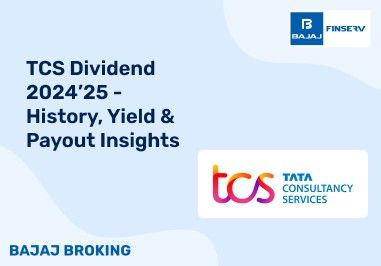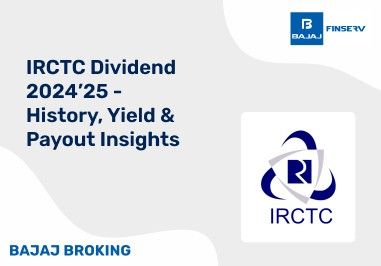BAJAJ BROKING
Tankup Engineers IPO is Open!
Open a Free Demat Account
Trade Now, Pay Later with up to 4x
Track Market Movers Instantly
Trading Psychology – Mastering the Right Mindset
The stock market and the trading that is associated with it is related to the individuals who behave in a certain manner (traders), hoping to make profits using several methods. As much as there are bearish and bullish markets, there are bearish and bullish people driving these markets to behave in a particular way on any given trading day. Consequently, trading psychology has a key role to play in financial markets and is something you should delve into deeply if you are a trader or investor.
Additional Read: Trading Account
Trading Psychology Explained
Trading psychology reflects the mental state and emotions that lead to the success or failure of any trading activity. Trading psychology has to do with the trader’s mindset before, while, and after executing a certain trade. The concept of trading psychology deals with many aspects of a person’s character and behaviour that has an impact on their trading actions. Trading psychology is as important in the trading ecosystem as other attributes of traders like, say, experience, knowledge, and skill in deciding how to make trades profitable.
In terms of drivers of trading success, two main attributes play key roles. These are discipline and the ability to take risks. The trader’s implementation of these factors is crucial to the success of any plan for trading. Other emotions like fear and greed also play roles in trading and are a part of trading psychology. Furthermore, hope and fear, as well as anxiety, also have roles to play, and any of these may impact the outcome of trading activity.
Additional Read: How to Open a Trading Account
Specific Emotions at Play
Trading psychology is the science of behaviour as it applies to traders involved in the action of trading. It is associated with some specific emotions and certain behaviours that act as catalysts in the trading activity itself. Most market analysts and experts that fear and greed are the most common feelings or emotions impacting trading behaviour. These are the emotions that are usually present when trading is based purely on emotion rather than other aspects like skill and knowledge.
While talking about trading psychology, greed plays a large role in trading and is defined by an excessive desire to possess wealth. This desire can be so extreme that it may often cloud judgement and rationality. Greed is generally thought of as a negative feeling and results in poor trading performance. For example, due to greed, a trader may take undue and illogical risks, purchasing stock of an unresearched company just because it may look good on paper. On the positive side, if there is one related to this emotion, greed inspires traders and investors to stay in trades that are profitable for longer periods.
In terms of the emotion of fear, this often inspires traders to prematurely close positions or not to trade at all due to a lack of confidence. In bearish markets, fear is very evident, causing traders to be hasty and irrational as they exit the market. Trading psychology explains that fear usually leads to panic, resulting in panic selling.
Why Trading Psychology is Important
The way that a trader’s portfolio performs is associated with the trading and investment decisions they have made. These decisions are affected by the emotions of the trader or investor and any mental processes. Although traders may base their decisions on techniques like fundamental analysis and technical analysis, they are humans after all and there are unconscious biases that influence trading.
When there is a lot of data to process, a trader may become a victim of heuristics which are unconscious mental shortcuts. This affects decision-making processes and could lead to less-than-optimal trading activity. Trading psychology is a field that explains this as a science and a reality of human behaviour that is all too present on the trading floor.
It’s All About a Trader’s Behaviour
Trading psychology and the principles associated with it go a long way to explain a trader’s behaviour and how this affects any investing and trading activity. The scope of trading psychology is wide as it encompasses both feelings and emotions as well as the behaviours arising out of these. In turn, all this affects the trading activity and can make or break trades.
A trader's or an investor’s mental state is as relevant, if not more, as their skill, expertise, knowledge, and experience while trading. Conscious and unconscious biases and other patterns of behaviour affect trading. Certain negative emotions like fear, greed, and regret may lead to potentially sub-optimal performance, or they may, in some cases, turn trades profitable. It is important to have a grasp of trading psychology and know when sentiment is leading the market and your mental state as a trader. The often-doled-out advice is to keep emotions at bay while investing, but this may be easier said than done. However, if you do some research on how trading psychology plays a role in trading activity, you may be better prepared as a trader.
Disclaimer: Investments in the securities market are subject to market risk, read all related documents carefully before investing.
This content is for educational purposes only. Securities quoted are exemplary and not recommendatory.
For All Disclaimers Click Here: https://bit.ly/3Tcsfuc
Share this article:
Read More Blogs
Disclaimer :
The information on this website is provided on "AS IS" basis. Bajaj Broking (BFSL) does not warrant the accuracy of the information given herein, either expressly or impliedly, for any particular purpose and expressly disclaims any warranties of merchantability or suitability for any particular purpose. While BFSL strives to ensure accuracy, it does not guarantee the completeness, reliability, or timeliness of the information. Users are advised to independently verify details and stay updated with any changes.
The information provided on this website is for general informational purposes only and is subject to change without prior notice. BFSL shall not be responsible for any consequences arising from reliance on the information provided herein and shall not be held responsible for all or any actions that may subsequently result in any loss, damage and or liability. Interest rates, fees, and charges etc., are revised from time to time, for the latest details please refer to our Pricing page.
Neither the information, nor any opinion contained in this website constitutes a solicitation or offer by BFSL or its affiliates to buy or sell any securities, futures, options or other financial instruments or provide any investment advice or service.
BFSL is acting as distributor for non-broking products/ services such as IPO, Mutual Fund, Insurance, PMS, and NPS. These are not Exchange Traded Products. For more details on risk factors, terms and conditions please read the sales brochure carefully before investing.
Investments in the securities market are subject to market risk, read all related documents carefully before investing. This content is for educational purposes only. Securities quoted are exemplary and not recommendatory.
For more disclaimer, check here : https://www.bajajbroking.in/disclaimer
Our Secure Trading Platforms
Level up your stock market experience: Download the Bajaj Broking App for effortless investing and trading













